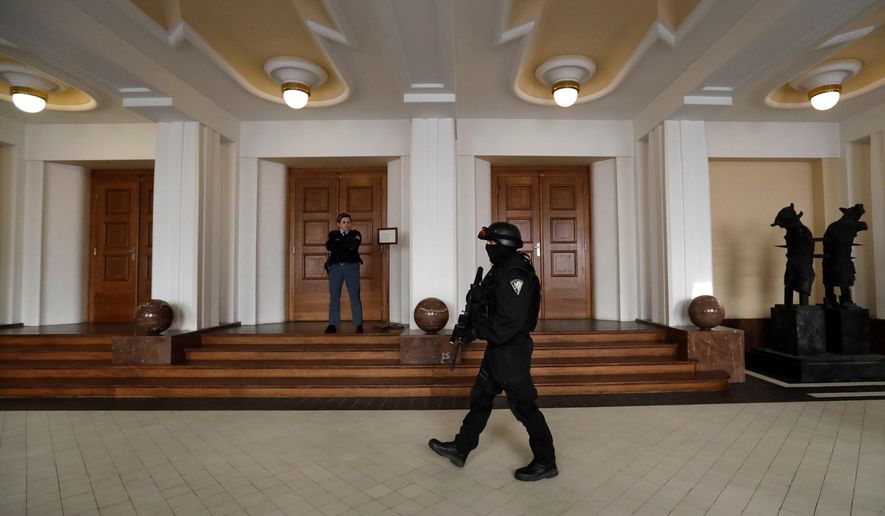A Russian man arrested over a year ago in the Czech Republic made his first appearance Friday in a U.S. courtroom, denying that he hacked computers at LinkedIn, Dropbox and other U.S. companies, compromising the personal information of millions of Americans.
Yevgeniy Nikulin, 30, pleaded not guilty to computer intrusion, aggravated identity theft and other charges in federal court in San Francisco. Nikulin had been extradited from Prague earlier in the day.
Prosecutors say Nikulin penetrated the computers of Silicon Valley firms in 2012 and potentially gained access to the personal information of millions of Americans.
“This is deeply troubling behavior once again emanating from Russia,” U.S. Attorney General Jeff Sessions said in a news release.
He said computer hacking is “a direct threat to the security and privacy of Americans” and that the U.S. won’t tolerate it.
Nikulin’s defense attorney has said his case is politically motivated in the U.S.
Czech Justice Minister Robert Pelikan’s decision to send Nikulin to the U.S. was announced just minutes after the country’s Constitutional Court released a statement that it rejected a last-minute appeal from the Nikulin as “groundless.”
No further details were immediately available about the decision in which both the U.S. and Russia suspect him of criminal wrongdoing.
The Czechs arrested Nikulin in Prague in cooperation with the FBI in October 2016. Russia also wanted him extradited on a separate charge of internet theft in 2009.
Both countries submitted their extradition requests on the same date.
The Russian authorities previously had said they would do all they could to prevent Nikulin’s extradition to the U.S.
Czech courts previously ruled both extradition requests meet the necessary legal conditions, leaving the decision to the justice minister.
But after a last-ditch complaint filed by Nikulin with the country’s Constitutional Court, the minister had to hold off on a decision until the court ruled.
Earlier this week, U.S. House Speaker Paul Ryan said in Prague that under Czech extradition law “we have every reason to believe and expect that Mr. Nikulin will be extradited to America.”
But the Czech Republic’s pro-Russia president, Milos Zeman, repeatedly asked Pelikan to allow Nikulin’s extradition to Russia, the minister said. Zeman has no official say in cases like this one.
Pelikan’s decision will likely further strain relations between the Czech Republic and Russia after the Czechs expelled three Russian diplomats in solidarity with Britain over a nerve agent attack on an ex-spy.
In a statement published by Russia’s Tass news agency, the Russian Embassy in Prague called the step “deeply disappointing.”
“Prague once again preferred the notorious allied solidarity without taking into account all the factors and circumstances of this case,” Alexei Kolmakov, the embassy’s press secretary, was quoted as saying.
___
Janicek reported from Prague.




Please read our comment policy before commenting.